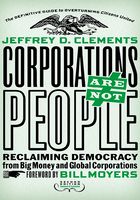
1972: Powell Gets His Chance
In January 1972, the US Senate confirmed President Nixon’s nomination of Lewis Powell to the Supreme Court. In a private farewell dinner, The Philip Morris CEO hosted a celebration of Powell’s achievement and the corporation provided him with a judicial robe to wear during his service on the Court.
President Nixon filled two Supreme Court vacancies that month, the other going to William Rehnquist, a conservative Republican lawyer from Phoenix, Arizona. Rehnquist had never been shy about his conservative views, which were well known and, to some, controversial. At the same time, neither Congress nor most Americans knew of Powell’s corporatist views. In his Senate confirmation hearing, no one asked about his recent proposal to the US Chamber of Commerce recommending the use of an “activist-minded Supreme Court” to impose those views on the nation. No one asked because Powell, and the Chamber kept Powell’s memo secret; neither disclosed the memo during his background check or confirmation proceedings.
Once on the Court, these two Nixon appointees followed very different paths. Justice Powell would go on to write the Court’s unprecedented decisions creating a new concept of “corporate speech” in the First Amendment. Using this new theory, the Court struck down law after law in which the states and Congress sought to balance corporate power with the public interest. With increasing assertiveness after Powell retired in 1987, the Supreme Court has used the new corporate rights theory to invalidate laws concerning food, the environment, public health and drugs, financial and insurance reform, and more.
Powell helped shape a new majority, but several justices resisted the new model of “corporate rights.” The most vigorous resistance came from the conservative Justice William Rehnquist. He grounded his dissents in the fundamental proposition that our Bill of Rights sets out the rights of human beings, and corporations are not people. For years, Rehnquist maintained this principled conservative argument, warning over and over again that corporate rights have no place in our republican form of government.